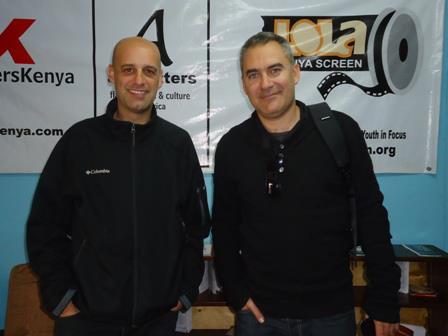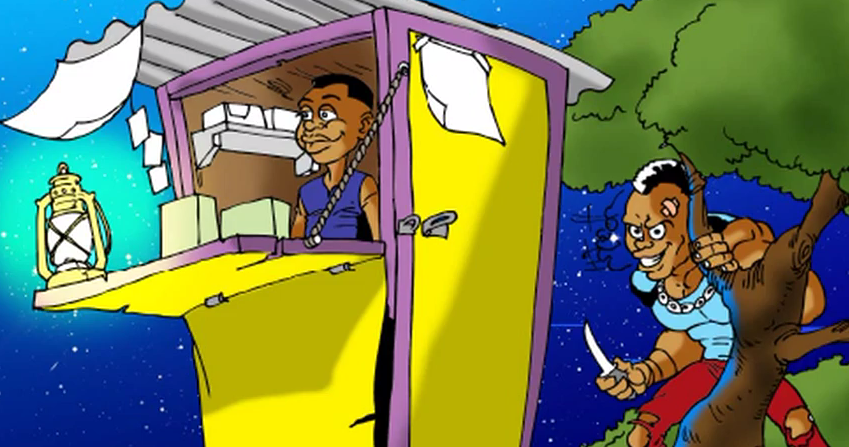By Adima Mesa
Published January 1, 2011
SAMBA TRAORE, an 85-minute film from Burkina Faso that combines documentary authenticity and fictional narration styles was in 2010 shown in Kenya to an estimated 6,000 children and youth in primary school, secondary school, university and neighborhoods across the breadth and width of Nairobi. This was one of five films shown in eight countries under the Cinetoile African Cinema Network umbrella. ADIMA MESA writes.
I came across this film that is set in urban and rural Burkina Faso during my participation in a critical writing workshop organised by the Lola Kenya Screen audiovisual media festival, skill-development mentorship programme and market for children and youth in Eastern Africa in November/December 2010. As part of our training as journalists and critics, we had to watch films and file reports on them.
Made in Dioula and sub-titled in English and French, the film revolves around a young man who commits an armed robbery at a petrol filling station in a city and flees with the loot to his rural village where he spends the money lavishly and sets villagers wondering where and how he got so much money. The suspicion from villagers, coupled with guilt, gives the young man, Samba Traore, constant nightmares.
Director Idrissa Ouedraogo has developed several themes that borders on guilt, friendship, love, greed and punishment. Guilt, greed and punishment are recurring themes throughout the film. Even after getting what he wanted from stealing the money, Samba Traore’s guilt disturbs him leading to endless sleepless nights because of nightmares.
RELATED: Youth Unemployment Undermines Development of Countries
Samba Traore is portrayed as a greedy man when he steals the money and builds what is arguably the largest house in the village but his angry father sets the house on fire when it dawns on him that his son had built it from stolen money. Traore is also arrested and this appears to be enough punishment already.
Friendship and love are also major themes highlighted in the story. Through telling Ali stories, Samba maintains a strong bond between the two and in the end only Ali comes to comfort him when he is chased away by the mother of his wife, Saratou. Although the two were different age groups they developed a strong friendship.
From the very start Salif and Samba are portrayed as bosom friends, judging from Samba’s generosity to him. They make great plans and even implement one; building a bar. When Samba is in grave danger, it is Salif who risks his life for him to escape and even gets a gunshot wound on his leg while trying to help Samba escape.
RELATED: A Somali Symphony
The love between Saratou and Samba is genuine, considering that Saratou leaves Ismael for Samba. She is also worried because of all the money that her husband is spending. This shows genuine love and care of Samba; instead of following his money.
The director of the film portrays Samba’s character as one of arrogance in the city but makes his friend a comical character. This is to neutralise the two characters and give us a nice side of Samba.
What I don’t like about the film is that some subtitles are in French and this disrupts the story for someone like me who does not understand French. I would have liked to understand what the characters are saying in their vernacular but unfortunately this is impossible as I also do not speak Dioula. More so some details are overstretched. Saratou’s period of labour is a case to consider. I felt it was a little too long. A good film should be believable. If the filmmaker overstretches facts the audience will not enjoy the film as it will be a joke to them. However that aside, SAMBA TRAORE is quite relevant in today’s society since it teaches us good morals and the consequence of our actions.
RELATED: Lola Kenya Screen 2013 Calls for Participation
The Cinetoile project was run in Burkina Faso, Congo-Kinshasa, Kenya, Mali, Uganda, Tanzania, South Africa and Zimbabwe. The Kenyan partner in the project was Lola Kenya Screen of Nairobi. The other four films shown in the programme included FROM A WHISPER by Wanuri Kahiu of Kenya, HERITAGE AFRICA by Kwah P Ansah of Ghana, LUMUMBA by France-based Raoul Peck of Haiti (based on Patrice Lumumba, the first prime minister of Belgian Congo that is now known as Democratic Republic of Congo), and MA SAAH-SAH by Daniel Kamwa of Cameroon.
Adima Mesa, a Form Two student at Precious Blood Secondary School in Riruta, Nairobi, Kenya, wrote this film review as part of her assignment during the Critical Writing mentorship programme at Lola Kenya Screen in Nairobi, November 29-December 4, 2010.




